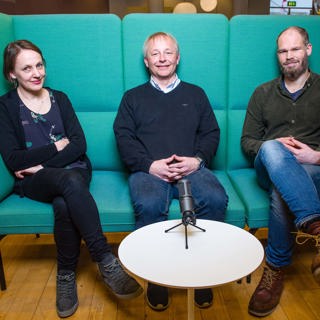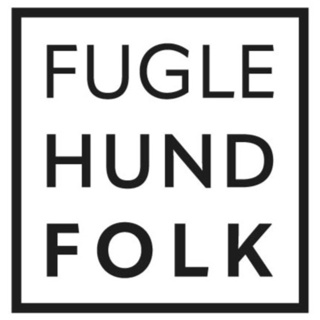
How green is space travel?
The images beamed back to Earth of the first civilian spacewalk have prompted a very pertinent question from one Inside Science listener: What effect is space travel having on our climate? We're used to delving into the carbon footprint of Earth-bound travel – so this week we’re going to explore the impact of the rapidly growing space industry on our climate. How does a rocket launch compare to a flight taking off? Do we even know the true cost yet – and if it’s significant, what might the solution be? Also on the programme, a personal perspective from a remote island on worrying seabird declines, the results of a project to refreeze Arctic sea ice, and why new evidence unearthed about the Falkland Islands suggests it may once have looked very different... Presenter: Vic Gill Producers: Ella Hubber & Gerry Holt Editor: Martin Smith Production Co-ordinator: Andrew Rhys Lewis Studio Manager: Rhys Morris BBC Inside Science is produced in partnership with the Open University. If you want to test your climate change knowledge, head to bbc.co.uk - search for BBC Inside Science and follow the links to the Open University.
24 Okt 202428min

Is lab-grown meat the future of food?
Lab-grown meat, cultivated meat, cultured meat, in-vitro meat - whatever you call it, the industry claims it could be a game changer. Not just economically, but for feeding the planet in a sustainable way.But is it too good to be true? And will people even eat it? In this special episode of Inside Science, we take a deep-dive into lab-grown meat; visiting a production facility to see how it's made, hearing about the nuanced perspectives of British farmers, asking if this new industry can learn from the failings of GM foods, and trying to figure out what the true environmental costs of entirely new way of producing food really is. Presenter: Victoria Gill Producer: Ella Hubber Editor: Martin Smith Production Co-ordinator: Andrew Rhys Lewis
17 Okt 202427min

The first civilian spacewalk
Today incredible images were beamed around the world of civilians walking in space – for the very first time. All eyes were on businessman Jared Isaacman and engineer Sarah Gillis as they ventured outside a Space X capsule. But is this an historic space exploration milestone - or just a very exciting holiday for a billionaire? We'll find out more from the BBC’s own expert space-watcher Jonathan Amos. Also this week, we visit Sellafield which processes and stores more radioactive material per square metre than any other site in Europe. But it is getting full. So where is our nuclear waste going to go in future? As the UK searches for a new potential site, we look at the science of what we do with nuclear waste and why. We’ll also delve into the fascinating world of nuclear semiotics. How can we communicate the dangers of nuclear waste to people living 100,000 years from now? Presenter: Vic Gill Producers: Sophie Ormiston & Gerry Holt Editor: Martin Smith Studio manager: Cath McGhee Production Co-ordinator: Andrew Rhys Lewis
10 Okt 202428min

The Grenfell cladding
As the long-awaited final report into Grenfell Tower is made public, we look at the cladding that has been at the centre of the story for seven years. We ask Richard Hull, an expert in chemistry and fire science who’s been following the story, why it was used in the first place and what made it so dangerous. Also this week, the neuroscience of the Oasis queue, the technology powering Paralympic athletes and strange sounds from space... Presenter: Victoria Gill Producers: Sophie Ormiston, Ella Hubber & Gerry Holt Editor: Martin Smith Studio Manager: Emily Preston Production Co-ordinator: Andrew Rhys Lewis
3 Okt 202428min

Predicting everything
The Royal Society recently announced the shortlist for their annual Science Book Prize – and nominated is science writer and journalist Tom Chivers, author of the book Everything is Predictable. He tells us how statistics impact every aspect of our lives, and joins Marnie as a studio guest throughout the show.A drug – lecanemab – that can slow the progression of Alzheimer’s disease has recently been approved for use in the UK, but the healthcare regulator NICE has said that it won’t be available on the NHS. But what is behind this decision, and what makes creating an Alzheimer’s drug so difficult? Professor Tara Spires-Jones from the University of Edinburgh talks us through the science.And could ‘smart paint’ supersize our fruit and veg? Reporter Roland Pease heads over to the experimental greenhouses of Cranfield University’s crop science unit to see if the technology works.Thee Paralympic Games are now underway in Paris, with athletes competing across 22 different events. But as competitors have a range of different impairments, how is it ensured that there's a level playing field? Professor Sean Tweedy from the University of Queensland calls in from Paris to explain how athletes are sorted into categories for competition.Presenter: Marnie Chesterton Producers: Sophie Ormiston and Ella Hubber Editor: Martin Smith Production Co-ordinator: Andrew Lewis
26 Sep 202434min

Why aren’t we eating more insects?
We try some cricket tacos and ask what role insects might play in our future diets, in a special programme with a live audience at Green Man Festival in the Bannau Brycheiniog National Park in Wales. Our panellists: Peter Smithers, an entomologist and fellow of the Royal Entomological Society Aaron Thomas, co-founder of Yum Bug, which makes meat out of crickets Dr Emily Porter, a dietician and gut health specialist for the NHS and The Gut Health Clinic What else should we explore – and where else should we visit? Send your suggestions to insidescience@bbc.co.uk Presenter: Marnie Chesterton Producer: Gerry Holt Editor: Martin Smith Sound manager: Mike Cox Production Co-ordinator: Jana Bennett-Holesworth
19 Sep 202427min

Beavers of London
The Ealing Beaver Project has found success as two new beaver kits have been born in a park in London after being reintroduced last October. Marnie visits the site to learn more about the benefits they bring - but beavers are just a drop in the river of urban rewilding. We find out what the practicalities and pitfalls of letting nature take back space in our cities are.Do you feel like your dog is watching you? You're probably right. Zoologist and broadcaster Jules Howard ponders on the human-watching acuity of our beloved pets.And our guts are not the only places where bacterial communities thrive, new research tells us that our microwaves also have a microbiome. Should we be worried?Presenter: Marnie Chesterton Producers: Ella Hubber, Sophie Ormiston and Gerry Holt Editor: Martin Smith Production Co-ordinators: Jana Bennett-Holesworth and Andrew Rhys Lewis
12 Sep 202428min

Going for gold
Today we will be going for gold in more ways than one. Inga Doak, the Head of Sustainability at The Royal Mint, reveals how the company plan to ‘urban mine’ gold from household electronic waste and turn it into jewellery. But with tens of millions of tonnes of e-waste piling up every year, the environment policy adviser at the Royal Society of Chemistry, Izzi Monk unpacks how the UK can clean up its act. Vic puts her stable boots on to visit some very pampered thoroughbred foals to find out what their poo can reveal about their future success on the racecourse. From horses to humanity, sports geneticist Alun Williams discusses how our genetic make-up could determine whether or not we are destined for gold at the Olympics. Plus, Roland Pease channels his inner child to investigate his youthful obsession with Mars as NASA looks for new microbial life on the red planet. Presenter: Victoria Gill Producers: Ben Mitchell and Ella Hubber Editor: Martin Smith Production Co-ordinator: Jana Bennett-Holesworth
5 Sep 202428min




















